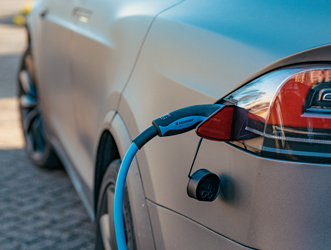The Florida Senate Committee of Transportation met in Tallahassee on Jan. 24 to discuss fees to be imposed on Floridians who drive electric vehicles.
The committee was tasked to work out appropriate fees, depending on what type of EV was being used. Battery-only cars would have a higher fee than a hybrid that uses an internal combustion motor in tandem with the battery.
According to Committee Chair Sen. Nick DiCeglie, R-Indian Rocks Beach, legislation has been filed in 31 states over the past three years to impose new registration fees on electric vehicles.
The definition of an EV in Florida, is a motor vehicle powered by an electric motor that draws current from rechargeable storage batteries, fuel cells or other sources of electrical current.
Road maintenance is paid for by the state, who collects the majority of its taxes via an excise tax on gasoline and diesel at the gas pump. Electric vehicles currently have a regular registration fee, however, the state wants an additional fee for EV users for their share of the road maintenance.
Cindy Price, the chief legislative analyst for the Senate, made a presentation about vehicle registration fees across the U.S. and how they would be imposed in Florida.
Price stressed the need for EVs in Florida to have a clearer definition, as those who drive EVs that also use a combustible engine, are in fact still paying for road taxes through purchasing fuel.
“The assertion is that electric vehicle owners may not be fairly contributing to the cost of constructing and maintaining public roads through payment of traditional registration fees,” Price said.
According to Price, 31 states currently impose some form of a special registration fee for EVs.
Around the country, the cost ranges from $75 to $200, and 18 of those 31 states also assess whether those vehicles operate on a combination of electricity and fuel. Fees for those types of EVs range from $45 in Iowa to $100 in Alabama, Arkansas, Ohio and West Virginia.
In Washington, the fee is around $225 per year for a plug-in electric vehicle and Oklahoma bases its fee on the vehicle size and weight. Idaho considered legislation in 2021 that would have increased EV registration fees to $300.
Some states are also already directing fees to construction and maintenance and including installing more charging stations.
One solution suggested was a road-user like charge, that would be a charge for every mile driven. Pennsylvania imposes an alternative fuel tax, which is computed on a gallon equivalent basis. According to the Pennsylvania Department of Revenue, the 2023 tax rate for electricity is .0183 per kilowatt hour.
Legislation will likely be filed once the committee has enough information and are able to work through the various nuances surrounding EV use.












